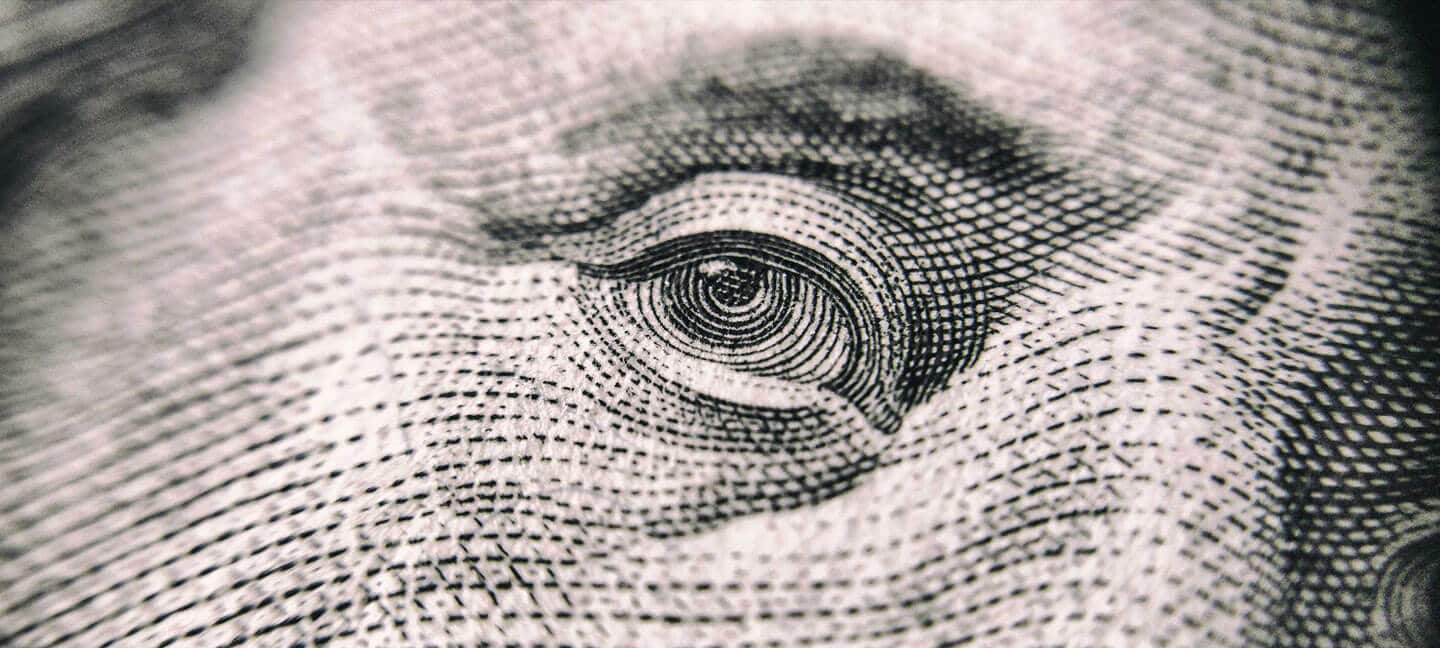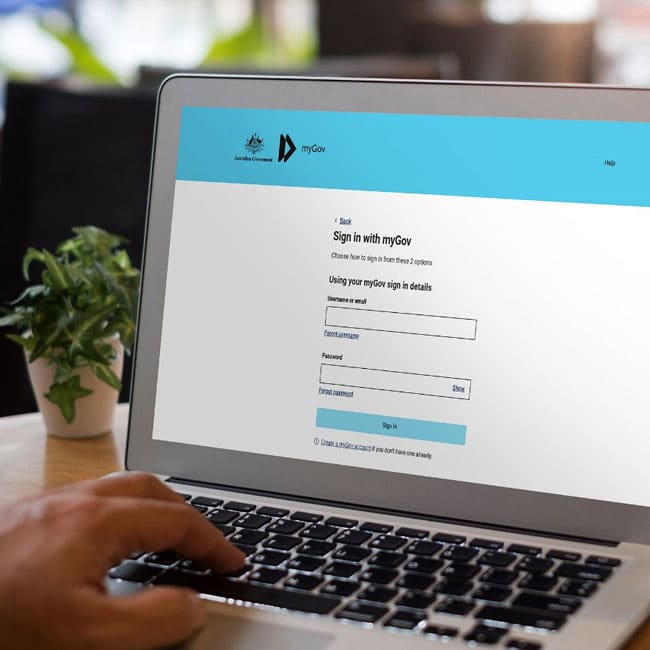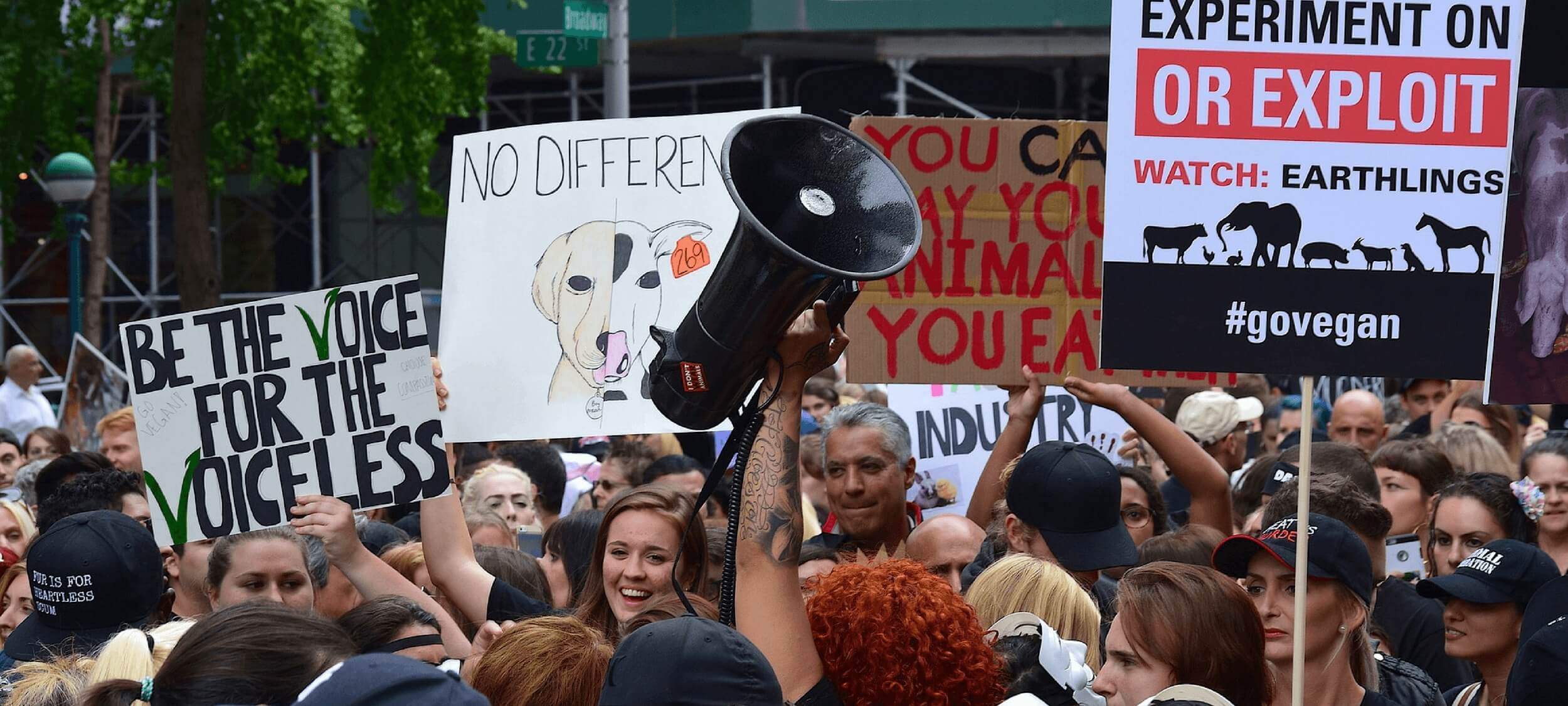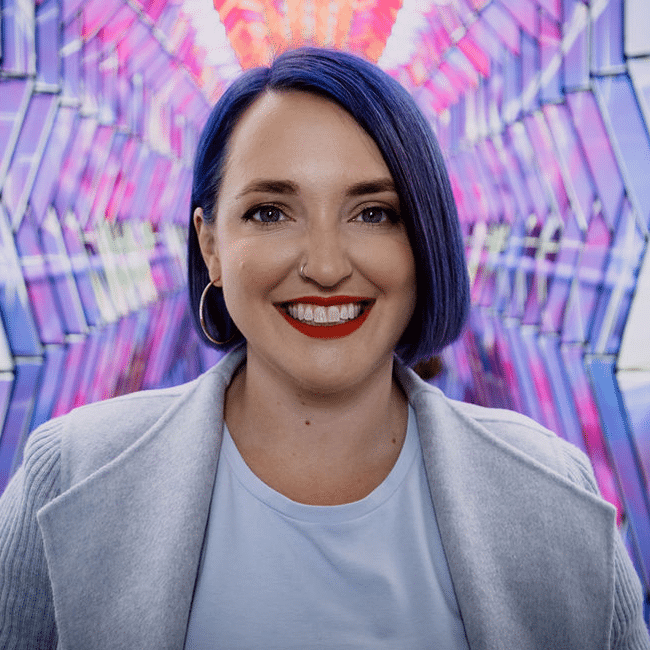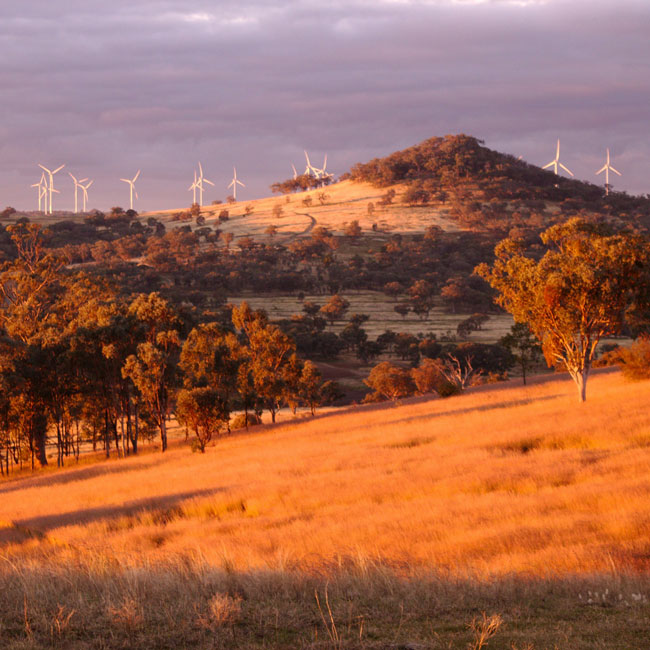Why businesses need to have difficult conversations

Why businesses need to have difficult conversations
Opinion + AnalysisBusiness + Leadership
BY The Ethics Alliance 8 FEB 2022
Let’s step back to examine the ethical foundation for conversation as seen by Socrates, who engaged in dialogue to converse.
This process involved asking and answering questions with the intent of sharing views in pursuit of a common goal towards a common good. This would then create a mutually accepted direction preventing any one person from pursuing a self-interested good.
Socrates felt these conversations allowed each to hold the other to account if what was presented was untrue. This process of back and forth questioning and answering draws on qualities of friendship, such as sharing, and allowing equal and fair time to respond, all while acknowledging the value and importance of each other’s points of view.
But what if you’re not friends? Or what if you feel your view should be prioritised? Conversations become essential when there is an urgency to resolve disagreements and there is a complex array of relationships with stakeholders who could be harmed or could benefit from the decisions that need to be made.
We are seeing this play out in all parts of society in attempts to address climate change.
There was a time in the 1900s when mining was crucial to the colony, with steamships, railways and steam mills playing a vital role in developing Australia’s economy. Today we recognise that past behaviour has and continues to contribute to the climate crisis.
Different organisations will be at different maturity stages in their path to a net zero future. There will be unintended consequences and changes in trajectories. To trust this process so that we can feel confident in addressing the trade-offs, we need to better understand it and be comfortable having these conversations.
What is missing that is preventing discussions from being focused on the ‘common good’?
Currently there is a stalemate at the Resolution Copper mine in Arizona between two Australian mining companies, BHP and Rio Tinto, and the Native American activist group, Apache Stronghold, claiming the land is sacred and shouldn’t be mined. The copper is needed to produce renewable energy and electric vehicles. 11 federally recognised tribes are part of the formal consultation process and they all have differing views around the project. At this stage conversation has failed and they are waiting on the law to determine next moves.
In 2023 a windfarm in Kaban, 49km south of Mt Emerald, QLD is due to start operations powering 96,000 homes. The project area includes 129 hectares of threatened species habitat and is home to greater gliders and the brood frog. The work done to date has come under heavy criticism from local conservation groups who see destroying the rich biodiversity as a means for greater wind energy as a complete oxymoron.
The issue is polarising for the general community, though, with some people seeing the project as a positive opportunity for employment and making the most out of a situation they feel they have no control over.
Others, like traditional owner Joyce Bean, broke down and cried after seeing the destruction caused to the land, saying “we didn’t have a say in it”. Traditional owners don’t have veto rights over projects on lands they claim native title on.
The acknowledgment of people’s dignity and worth is a principal element of a conversation. Has a lack of power or recognition eventuated in the local community being omitted from the conversation?
A TED Countdown Summit in Edinburgh was a platform for a difficult and at times emotional conversation on the trajectory of decarbonisation. The guests included Royal Dutch Shell’s global CEO, Ben van Beurden; Chris James, founder of the activist fund Engine No. 1; and Lauren MacDonald, a Scottish climate activist. The platform was formatted in such a way that each speaker was asked to present their position in addressing decarbonisation and the other two could ask a question of them which would then be answered – much like the Socratic method of enquiry.
The conversation broke down when MacDonald passionately presented a statement and question to van Beurden but was unable to stay sharing the stage to hear the answer with the person she felt was responsible for a crisis situation in Scotland. The organisation had lost legitimacy in her eyes. The result was no conversation.
Greg Joiner, VP Renewables and Energy solutions at Shell, recognises how difficult it is to turn people’s views when trying to explain Shell’s corporate strategy to reach net zero by 2050. He explains that playing a significant role in transitioning the energy sector ‘is not linear, it’s dynamic and iterative and there are unintended consequences”. He says that often models need to be redesigned creating discontinuities which are challenging for everyone and leave an organisation open to greenwashing accusations.
Does this suggest the best way forward is to not have conversations but rather do the work, meet the targets and let the results speak for themselves?
What is the benefit of conversation? As much as the exchange of ideas and thoughts is important, the ability to listen may be more so. In conversations we learn about people’s values and principles and emotional investment. We also gain insight into how others interpret and evaluate our ideas. All of this helps to develop empathy and think of new ways to approach a complex situation.
If we want to embed ethics into our business and decision-making, we need to continuously encourage conversations that monitor the circumstances and be willing to change our minds.
Trying to change people’s views or omit them from the discussion hinders or prevents the conversation. As humans we are fallible and opening ourselves up to different perspectives, even those we disagree with, creates new possibilities. If we want to protect ourselves, the animals and biodiverse planet we live on, we need to have conversations.
A Socratic discussion shows that how we communicate is often more important than what we say. We don’t need to be friends, but if we start conversations from a place of curiosity and respect, sharing and providing equal opportunity for reciprocity, then the conversation can remain mutually supportive, and we can successfully pursue a ‘common good’.

This article was originally written for The Ethics Alliance. Find out more about this corporate membership program. Already a member? Log in to the membership portal for more content and tools here.
Ethics in your inbox.
Get the latest inspiration, intelligence, events & more.
By signing up you agree to our privacy policy
You might be interested in…
Opinion + Analysis
Business + Leadership, Society + Culture
There’s something Australia can do to add $45b to the economy. It involves ethics.
Opinion + Analysis
Business + Leadership, Politics + Human Rights
Democracy is still the least-worst option we have
Opinion + Analysis
Business + Leadership, Relationships
It’s time to take citizenship seriously again
Opinion + Analysis
Business + Leadership, Relationships
The transformative power of praise
BY The Ethics Alliance
The Ethics Alliance is a community of organisations sharing insights and learning together, to find a better way of doing business. The Alliance is an initiative of The Ethics Centre.
Recovery should be about removing vulnerability, not improving GDP

Recovery should be about removing vulnerability, not improving GDP
Opinion + AnalysisBusiness + Leadership
BY The Ethics Alliance Cris Parker 29 SEP 2020
Vulnerability demands attention and, in the past, where profits were prioritised business was preoccupied and vulnerable customers harmed.
Because of Covid 19 we can expect to see more vulnerability with multiple drivers. The pandemic has reminded us that we can all be vulnerable if the right (or wrong) circumstances occur.
A year ago, your vulnerable customer probably didn’t look like my daughter and her friends: cashed-up twenty-somethings, single, easy going and living alone. Nor did a dual-income household with primary school-aged kids automatically raise any red flags.
However, we are now realising the various ways that changes in circumstances can quickly render us vulnerable in both financial and non-financial ways. The physical, emotional and financial impacts of the pandemic challenge business to find new ways to recognise and forecast when people are experiencing hardship. Not least because many people who find themselves in hardship may be less likely to seek support.
We live in a society where wealth is a sign of success – particularly for those who have grown accustomed to a certain level of financial wellbeing. In this context, to be labelled vulnerable is a suggestion that you have failed in some way. There’s an element of shame or even a stigma attached to the label.
Vulnerability is so often positioned through an economic lens, the term synonymous with poverty, diminished capacity or poor decision-making. This means singles struggling with the mental health impacts of isolation and parents collapsing under the pressure of home-schooling may baulk at the idea of being labelled ‘vulnerable’.
Our new reality also requires fresh approaches to handling people who have experienced a sudden change in fortune. People who managed just fine in the “gig economy” are now in a precarious position in “insecure employment”. Those who took on huge debts to buy homes in our major cities are also under extreme financial pressure as the economy continues to slide.
I recently participated in a discussion with customer advocates from the financial services sector. One advocate revealed that estimated calculations were that we can expect around 30,000 homes to be lost as a result of the pandemic. A month ago (which seems an age in COVID-time), the Lowy Institute reported the number of unemployed would soon exceed 1.3 million. The jobless rate will climb to 10 per cent by the end of the year and still be above 8 per cent by the end of 2021, according to the Reserve Bank of Australia (RBA). In short, all evidence points toward an explosion in the amount of vulnerable people businesses are dealing with.
“Measured as Gross Domestic Product (GDP) per head, Australia’s average living standards are falling and will take several years to return to the pre-pandemic level,” says the institute’s John Edwards, a former member of the Board of the RBA, and Adjunct Professor with the John Curtin Institute of Public Policy at Curtin University.
Our economy’s health is measured by our GDP. It’s the magic acronym: – the more it goes up, the better off our society is, or so they say. However, given the anticipated explosion of vulnerable customers and people facing financial hardship, it might be worth revisiting the role GDP plays in our understanding of economic health.
If our GDP recovers, but we see minimal reduction in the amount of vulnerable people – financially vulnerable or otherwise – is this really a recovery at all?
Measuring a society’s health by GPD can be a useful rule of thumb, says business ethicist Dr Ned Dobos, Senior Lecturer in International and Political Studies at the UNSW Canberra. However, it would be “wrong-headed” to put too much faith in it, Dobos argues that we need different metrics than relative material wealth to measure how we are going.
Dobos points to the research conducted by Daniel Kahneman and Angus Deaton, showing that more money will only make people happier up to a certain point – around $US75,000. But while extra money may make them feel more successful, it will not make them feel happier beyond that threshold.
“We’re continuing to measure the welfare of our society in terms of GDP, even though GDP has no proven connection to our sense of wellbeing anymore,” he says.
“We have fetishised material wealth, even though it’s not connected to the things that ultimately matter.”
Dobos hopes that a silver lining from the pandemic will be that, as a community, we have more understanding of people who are unemployed and that we realise that poverty is not a character defect.
“Surely people, after a period of time, would have to appreciate that with a million people in this country unemployed, [unemployment] must be something that is not entirely within their control,” he says. “We can’t have that many degenerates.”
Susan Dodds, Professor of Philosophy at La Trobe University, agrees. She says she would like to see a recognition that attaining wealth requires a fair degree of luck, rather than it being something one “deserved”.
She would prefer the discussion of economics shift from GDP to “talking about what makes for a decent life.”
There are large numbers of people who are working as casual, low-paid, low-skilled, itinerant workers – moving between nursing homes. There’s a reason for that: they’re not doing it because: ‘gee whiz, I’d love the flexibility’,” says Dodds.
Dodds says the pandemic is an opportunity to have another look at what a reasonable expectation of profit is. “The idea that we can get, year-on-year, a two per cent reduction in our costs in order to get an inflationary increase in our profits, making me comfortable with the amount of dividend I get, is really exploitative.”
What gets measured gets done. If our recovery is determined exclusively in terms of GDP, it might mean creating more vulnerable people, as organisations are incentivised to pursue relentless growth.
There has been a global push for more purposeful capitalism; Blackrock CEO Larry Fink wrote a letter to 500 CEOs last year addressing this issue. Closer to home, this year New Zealand is the first western country to design its entire budget based on wellbeing priorities. “We’re embedding that notion of making decisions that aren’t just about growth for growth’s sake, but how are our people faring?” Ardern said.
The ACT has identified that economic conditions, important as they may be, are not the only factors that contribute to the quality of life of Canberrans. In releasing the Budget in March 2020, the ACT Chief Minister Andrew Barr stated, “We are more than an economy – we are an inclusive, vibrant and caring community where we aim for everyone to share in the benefits of a good life both now and in the future.” The ACT Wellbeing Framework will inform Government priorities, policies, investment decisions and Budget priorities.
In his recent Ted Evans lecture, economist Professor Ian Harper, an RBA board member, reminded economists to talk to the public, to keep in touch with what the community thinks are important priorities.
“Apart from anything else, you learn so much about what really matters for people. Whether it’s the level of minimum wages, a level of interest rates, how banks are supervised, where you can open a pharmacy, when you can open a supermarket or where you can get treated for infectious disease,” says Harpers.
“No one should be surprised that an economist should worry about the human dimension of his craft – social science, it may be, but economics started out as moral philosophy.”
“Our quest to raise community welfare cannot be divorced from its foundation in a moral calculus. More to the point, if it is divorced from its moral foundations, then economic policymaking is more likely to diminish than enhance economic welfare.”
Ethics in your inbox.
Get the latest inspiration, intelligence, events & more.
By signing up you agree to our privacy policy
You might be interested in…
Opinion + Analysis
Science + Technology, Business + Leadership
Should your AI notetaker be in the room?
Opinion + Analysis
Business + Leadership
Do organisations and employees have to value the same things?
Opinion + Analysis
Business + Leadership, Health + Wellbeing
Why ethical leadership needs to be practiced before a crisis
Opinion + Analysis
Health + Wellbeing, Business + Leadership
Teachers, moral injury and a cry for fierce compassion
BY The Ethics Alliance
The Ethics Alliance is a community of organisations sharing insights and learning together, to find a better way of doing business. The Alliance is an initiative of The Ethics Centre.
BY Cris Parker
Cris Parker is the former Head of The Ethics Alliance and a Director of the Banking and Finance Oath at The Ethics Centre.
Pulling the plug: an ethical decision for businesses as well as hospitals

Pulling the plug: an ethical decision for businesses as well as hospitals
Opinion + AnalysisBusiness + Leadership
BY Matthew Beard The Ethics Centre 31 MAY 2020
If you were to plot a timeline of the Covid-19 pandemic, one way of dividing up the different stages would be by reference to the resources shortage we were facing at the time. First stage: toilet paper and hand sanitiser. Second stage: masks and protective equipment. Third stage: ventilators and hospital beds. Fourth stage: money.
Fortunately, we seem to have skipped stage three in Australia, and for the most part, we’ve addressed shortages in protective equipment and at grocery stores. However, with the focus in Australia now largely on the economic fallout from the pandemic, the question of how to distribute and share limited wealth is now at the front of people’s minds.
Among a range of economic measures introduced to address the Covid-19 crisis, the government has suspended insolvent trading laws for six months. This enables organisations who would otherwise go out of business to continue trading.
Welcomed as a lifeline by many, the question we should be asking is: who is the lifeline for? Should every organisation who is eligible take advantage of the scheme? Whilst it would be tempting, and completely understandable for someone to try to take advantage of every possible support before letting their business go, doing so may well overlook other, more pressing concerns.
John Winter, the CEO of the Australian Restructuring Insolvency & Turnaround Association (ARITA), worries that the six-month safety net might have significant economic impacts later on. “All they are doing is kicking the can down the road,” he says. As a number of businesses take no-interest or low-interest loans to mitigate insolvency, they increase the risk of a more expensive insolvency later on.
“You’re going to have a tsunami of insolvency. You have to have one,” says Winter.
Ethicists use the term ‘moral temptation’ to refer to situations where personal needs and desires are strong enough to override our usual ethical decision-making. Moral temptations aren’t ambiguous ethical choices; rather, they’re situations where the potential benefits for a person are high enough that they might rationalise making a choice that doesn’t hold up to their ethical beliefs. The possibility of keeping a business afloat could generate this kind of situation.
What typically occurs in a moral dilemma is that a person puts disproportionate weight on their own needs and desires, thus overlooking or underestimating the importance of what other people need.
When it comes to the decision to continue trading whilst insolvent, this might mean failing to consider how desperately creditors need their outstanding debts paid. It might mean retaining staff and giving them false hope of ongoing employment, rather than giving them redundancies and the opportunity to seek work elsewhere, whilst unemployment payments are higher than usual. In many cases, it’s unlikely someone taking an objective view would think the benefits of keeping a struggling business afloat were justified, relative to the harms it generates for other groups of people.
“When you are insolvent as a business, you know that you’re not going to pay back the money you owe,” says Winter.
“You can’t get more broke than broke, [but] what you are doing is significantly impacting those that you owe money to,” he adds. “If you’re running a small business, it’s generally other small businesses you owe money to as well. You could actually be sending them broke.”
Here, it might be helpful to consider the kinds of questions that ventilator shortages and other health resource limitations are posing around the world – the kind we’ve managed to avoid here. In New York, where there is a real possibility of healthcare shortages, guidelines indicate that doctors “may take someone who is desperately ill and not likely to live off that ventilator and put someone else with a much better chance on.”
The logic here is simple: when faced with a choice between delaying inevitable, imminent death and restoring someone’s health to live a full life, we should choose the latter.
In many cases, families and patients will decide to remove a ventilator in such cases, knowing that in doing so, they are gifting a lifeline to someone else. For some, the choice is also one that offers considerable relief. Rather than fighting to maintain life, despite the suffering on all involved, they can finally let go.
Winter suggests a similar relief is possible for those whose businesses are in trouble. “When directors finally sit down and say, ‘yeah, I’m done, I’m handing the business over to a liquidator’, they feel a massive sense of relief. They’ve taken so much weight on their shoulders because of the ethical concerns they face around the consequences for others.”
For organisations on the brink of insolvency, the central question seems to be whether to take a lifeline or be a lifeline – resolving matters as best they can, ensuring staff and creditors are cared for – or taking a shot at reviving their business with the help provided?
Before making a choice, organisations facing insolvent trading may wish to consider:
- Do I have justifiable reasons to think that the business will be in a better financial position? Will it be able to pay its debt and meet its obligations in six months time?
- What effects would my decision to continue trading have, whether I am successful or not, on creditors and staff?
- What is the intended purpose behind the suspension? Am I exploiting a loophole or one of the intended beneficiary?
- Are there people who could be saved if I decided to cease trading now? Does the business have any obligations toward those people?
- Is my desire to see this business continue clouding my judgement? Do I need someone independent to help me make this decision?
There is no hard-and-fast rule here. Some organisations will be able to use this support to revive their business to a healthy state. Ideally, those that do have done so in the confidence that the risks they were posing to others were low: they weren’t ‘taking a punt’ with the time available, but making an informed choice about what was in the best interests of the business, creditors, staff and the economy at large.
There is an old saying in military circles: death before dishonour. The question facing some organisations now is just that: when are the social costs too high for me to continue trading? When is it the right thing to do to pull the plug?
You can contact The Ethics Centre about any of the issues discussed in this article. We offer free counselling for individuals via Ethi-call; professional fee-for-service consulting, leadership and development services; and as a non-profit charity we rely heavily on donations to continue our work, which can be made via our website. Thank you.
Ethics in your inbox.
Get the latest inspiration, intelligence, events & more.
By signing up you agree to our privacy policy
You might be interested in…
Opinion + Analysis
Business + Leadership
Self-presentation with the collapse of the back and front stage
Opinion + Analysis
Business + Leadership
David Gonski on corporate responsibility
Opinion + Analysis
Business + Leadership, Health + Wellbeing
Navigating a workforce through stressful times
Opinion + Analysis
Business + Leadership
Accepting sponsorship without selling your soul
BY Matthew Beard
Matt is a moral philosopher with a background in applied and military ethics. In 2016, Matt won the Australasian Association of Philosophy prize for media engagement. Formerly a fellow at The Ethics Centre, Matt is currently host on ABC’s Short & Curly podcast and the Vincent Fairfax Fellowship Program Director.
BY The Ethics Centre
The Ethics Centre is a not-for-profit organisation developing innovative programs, services and experiences, designed to bring ethics to the centre of professional and personal life.
A new guide for SME's to connect with purpose

A new guide for SME’s to connect with purpose
Opinion + AnalysisBusiness + LeadershipSociety + Culture
BY The Ethics Centre 27 MAY 2020
Purpose, values and principles are the bedrock of every thriving organisation. With many facing a reset right now, we’ve released a guide to help small to medium sized businesses create a road map for good decisions and robust culture.
In the world of architecture, even the most magnificent building is only as strong as its foundations. The same can be said for organisations. In these times of constant change, a strong ethical culture is essential to achieving superior, long-term performance – driving behaviour, innovation, and every decision from hiring, through to partnerships and customer service.
The foundations for a high-performance culture are made up of three principal components: Purpose, Values and Principles.
Each is necessary. Each plays a specific role. Each complements the other to make a stable foundation for the whole. Together, they make up what we call an Ethics Framework.
PURPOSE (WHY) – An organisation’s reason for being.
Purpose explains the WHY; it is the reason an organisation exists and what it was set up to do or achieve. It’s a defining expression of what your organisation stands for in the world and why it matters.
VALUES (WHAT) – What is good.
Values shape the WHAT; they are the things that an organisation believes are good and worth pursuing. Values guide actions, activities and behaviours within an organisations by identifying what is of merit.
PRINCIPLES (HOW) – What is right.
Principles determine the HOW; helping to guide how an organisation obtains the things it thinks are good. If Values tell an organisation what to pursue, Principles tell them how they should go about getting those things.
The Ethics Centre has spent the past thirty years helping organisations to build and strengthen their ethical foundations. In many cases, we have been able to work directly with organisations. However, not every organisation has either the time or the funds needed to invest in specialist advice.
So, the Centre was pleased to accept a grant from The Australian Securities and Investments Commission’s Community Benefit Fund for the purpose of creating a ‘DIY Guide’ for ethics frameworks – with a special focus on the needs of small to medium-sized businesses. It goes beyond broad theory to offer practical, step-by-step guidance to anyone wanting to define and apply their own Purpose, Values and Principles.
The publication of this guide comes at an especially important time. The current pandemic is testing organisations as never before.
Indeed, COVID-19 is every bit as dangerous as an earthquake – except, in this case, it is the ethical foundations of organisations that will determine whether they stand or fall. In a time of crisis, weak foundations are susceptible to crumble, opening up an organisation to the risk it will make ‘bad’ decisions that will ultimately cost it dearly.
The Ethics Centre believes that prevention is better than cure. Our hope is that the practical guidance offered by this guide will provide owners and managers with the tools they need to build stronger, better businesses.
Ethics in your inbox.
Get the latest inspiration, intelligence, events & more.
By signing up you agree to our privacy policy
You might be interested in…
Big thinker
Politics + Human Rights, Society + Culture
Big Thinker: Slavoj Žižek
Opinion + Analysis
Business + Leadership
The pivot: ‘I think I’ve been offered a bribe’
Opinion + Analysis
Business + Leadership, Science + Technology
People first: How to make our digital services work for us rather than against us
Opinion + Analysis
Science + Technology, Business + Leadership
The ethics of AI’s untaxed future
BY The Ethics Centre
The Ethics Centre is a not-for-profit organisation developing innovative programs, services and experiences, designed to bring ethics to the centre of professional and personal life.
Moving on from the pandemic means letting go

Moving on from the pandemic means letting go
Opinion + AnalysisBusiness + LeadershipHealth + WellbeingRelationships
BY Cris Parker The Ethics Centre 4 MAY 2020
Emerging from the turbulence of COVID-19, we have the opportunity to escape the hold of our past and use moral imagination to explore a better future.
After months of living through disruption, old work habits and perceptions may no longer fit the ‘new normal’, says Michael Baur, Associate Professor in the Philosophy Department at Fordham University and an Adjunct Professor at Fordham Law School.
“There’s a very positive side to this, because it makes us realise that the seemingly obvious, natural way of operating is not so obvious anymore.” says Baur.
“It does afford us the ability to think a little bit more carefully about what we’re doing.”
A simple example may be that, after mastering virtual meetings, we realise that the regular face-to-face interstate meetings we thought to be essential are not, in fact, a necessary part of doing business. Instead of asking ‘can we do this online?’ we might now ask, ‘should we do this online, is there a good reason to do it in person?’
“It’s liberating, potentially, to be able to be thrown back and see that the seemingly natural is really not so natural and obvious after all,” says Baur.
Aspects of life previously unquestioned, such as our choices of where to live, send our kids to school or even the jobs we do, may be cast in a different light.
Speaking with Bob McCarthy, an Irish colleague, he spoke of the experience of the ‘Celtic Tigers’ during ten-year-plus period of economic growth prior to 2008. “Ireland had never experienced anything like it and our economy became the envy of the world. Of course, we lived in accordance with our new wealth and fame – two houses each, BMWs, ski holidays and buying chalets in Morzine”, says McCarthy.
Many rationalised their good fortune – ‘we’ve had it tough for so long we deserve a little luxury.’ So, when the Global Financial Crisis (GFC) crash came, it came hard. There was a 60% average fall in property prices, high unemployment, many family tragedies, house repossessions and years of debt to repay.
Bob said that the experience of crisis changed attitudes and behaviours, “Now, those of us who have been through this look at life, business, money, relationships, values, ethics through a different filter than before”.
He describes the experience of having benefitted from the pain. What had once seemed important during the times of excess are no longer important. What didn’t matter then, matters to him now. “Don’t get me wrong – not everything has changed. But for most the filter we use has changed”.
Baur says that, with the experience of COVID-19, we now have a similar opportunity to reset our aspirations, “When we were riding easy, just several weeks ago, we were in a state of deception.” He recognises that the pandemic has caused major economic shocks – perhaps even more severe than those caused by the GFC, “And now we can regroup. That seems to me a more positive, healthy way of thinking of it – that all of this wealth and expectation was not really ours to have to begin with.”
Bigger is not always better
The aftermath of the pandemic presents a good time to reassess our attitude to growth. The fact that almost all sectors of business have suffered means that there is a collective opportunity to slow down and reassess whether the purpose of business is to make more money for money’s sake, or to provide for human need.
Business is now attending to issues that were always there to be addressed – but remained largely ‘unseen’. By presenting itself as a ‘common enemy’, COVID-19 has caused us all to look up at the same time and respond to a suite of collective problems.
In many cases, our response has been an expression of human goodness, compassion and altruism. ‘Them’ has become ‘us’.
For example, Accor hotels, is opening up unused accommodation to support vulnerable people. Simon McGrath, Accor’s CEO, says, “Our doors are open,” said Accor’s McGrath “We have accommodation assets that can help people in times of need, and while the industry’s been devastated commercially, it doesn’t mean we can’t help.”
In a similar vein, UBER has partnered with the Women’s Services Network to provide 3,000 free rides to support those needing safe travel to or from shelters and domestic violence support services.
Australia was relatively unscathed by the GFC of 2008 and did not experience the large economic downturn felt elsewhere on the globe. Australia has also managed to flatten the curve and “none have been more successful than Australia and New Zealand at containing the coronavirus,” said Jonathan Rothwell, Gallup’s principal economist.
This is thanks to our strong public health system and our comprehensive testing regime, to the tracing of carriers and our strict self-isolation and physical distancing laws. We were also lucky that our geographic isolation bought us an extra 10 precious days to prepare.
However, Australia has not and will not escape the economic consequences of the pandemic – and our response to the threat it poses. So, how will we shape up when the challenge is an economic recession as opposed to a medical emergency? Will the good will and sense of common endeavour persist during the next phase of struggle? More interestingly still, will the sense of mutual obligation survive a return to posterity? Or will we resume our ‘old ways’?
Baur says an argument could be made that business and society in general did not make the most of the lessons to be learned from the GFC, more than a decade ago. Ireland’s Bob McCarthy, is of the same opinion, “We may be having an opportunity that would have been a lost opportunity from that time,” he says.
“What might be seen as a loss of opportunity, a loss of growth, in one limited respect, is really a darn good thing for everybody,” Baur says.
Echoing the same sentiment, Mike Bennetts CEO of Z Energy in New Zealand told audiences at the Trans – Tasman Business Circle that this virus has accelerated us into the future by 5 years, so “let’s make the most of it”. Our instinct is to seek comfort and confidence in the known which will mean going back to the way it was.
The challenge, now, is not only to create a new future but a better future. For that to happen we need to unleash a better version of ourselves.
You can contact The Ethics Centre about any of the issues discussed in this article. We offer free counselling for individuals via Ethi-call; professional fee-for-service consulting, leadership and development services; and as a non-profit charity we rely heavily on donations to continue our work, which can be made via our website. Thank you.
Ethics in your inbox.
Get the latest inspiration, intelligence, events & more.
By signing up you agree to our privacy policy
You might be interested in…
Opinion + Analysis
Climate + Environment, Health + Wellbeing
How should vegans live?
Big thinker
Relationships
Big Thinker: bell hooks
Explainer
Health + Wellbeing, Relationships
Ethics Explainer: Tolerance
Explainer
Business + Leadership
Ethics Explainer: Consent
BY Cris Parker
Cris Parker is the former Head of The Ethics Alliance and a Director of the Banking and Finance Oath at The Ethics Centre.
BY The Ethics Centre
The Ethics Centre is a not-for-profit organisation developing innovative programs, services and experiences, designed to bring ethics to the centre of professional and personal life.
Leading ethically in a crisis

Leading ethically in a crisis
Opinion + AnalysisBusiness + Leadership
BY Simon Longstaff The Ethics Centre 4 MAY 2020
It is difficult to excel in the art of leadership at any time – let alone in the midst of a crisis. Yet, this is precisely when good leadership is at a premium.
Right now, we must ask: what is ‘good’ leadership and how should leaders respond to the demands placed upon them during periods of extraordinary ethical complexity?
In attempting to answer these questions, I am thrown back on my own experience of leadership – including at present. In that sense, this not a detached, objective account. Rather, it is a reflection on (and of) lived experience.
The first obligation of a leader is to see, and sense, the whole picture. This means being alive to the undercurrents of feeling and emotion flowing through the organisation, while simultaneously keeping a clear view of the evolving strategic landscape and being ‘present’ in the moment.
The good leader needs to ensure that no one affected by the crisis is either overlooked or marginalised. This is harder than it seems. When driven by the ‘lash of necessity’, it’s all too easy to favour some people because of their utility, while dismissing others as ‘dead weight’.
I have been struck by the number of times that people have said the current emergency requires them, albeit reluctantly, to be cold-hearted, brutal or even cruel. I realise that such comments do not reflect their personal inclination – but instead reflect their response to evident necessity. However, I think that ethical leaders have an obligation to challenge that tendency – not least by naming it for what it is.
This is not to say that issues of relative utility are unimportant. Nor is it the case that one should avoid difficult decisions – such as those that might lead to job losses. Rather, the leader’s job is to ensure that such decisions are not made on the basis of cold, dispassionate calculation. Instead, the leader has an obligation to ensure that the ethical weight of each decision is felt and the heft of the burden that falls from each decision is known.
The second requirement of ethical leaders is that they resist demands for a certainty they cannot or should not provide. This is easier said than done. There are some contexts in which the suspense of ‘not knowing’ can be thrilling; however, for most people operating under stress, confronting ‘the unknown’ reinforces a sense of powerlessness and is deeply unsettling.
Even so, ethical leaders should resist the temptation to offer people false certainty, no matter how much that might be desired. Instead, a good leader should be resolutely trustworthy by only claiming as ‘certain knowledge’ what is genuinely known. Otherwise, a leader’s integrity can be undermined by something as simple as a gap between what was asserted as fact and what is subsequently revealed to be true.
None of this is to suggest that people be denied glimmers of hope based on one’s best estimate. It is merely to counsel caution – especially when a delay can open up new possibilities. The recent and unexpected emergence of the Federal Government’s JobKeeper scheme is a good example.
Leading during a crisis requires an ability to foresee a future, preferred state and then ‘backcast’ to the present when making decisions. As noted above, in the course of a crisis, many decisions will be made under the ‘lash of necessity’.
In these circumstances, people will be driven to accept the harshest treatment as a ‘necessary evil’. However, a time will come when the crisis is relegated to the past and those who remain in an organisation will want to know what justified the sacrifice – especially that made by those who fell along the way.
Telling people that it was ‘necessary’ will not be enough. Instead, those who remain will require a positive justification that goes beyond ‘mere survival’. It is in the light of that positive justification that all of the preceding decisions need to be evaluated. So, leaders need to ask themselves, ‘is today’s decision going to foreclose on the future we hope to create’. In particular, will my present choice make my preferred future impossible? Will it delegitimise my future leadership?
Finally, leaders need to release themselves from the unrealistic expectation of ‘ethical perfection’. This is not to say that one should be careless in decision making. Rather, it is to recognise a fundamental truth of philosophy: that some ethical dilemmas are so perfectly balanced as to be, in principle, undecidable.
Yet, we must decide. The only reasonable standard to apply in such cases is that we are sincere in our judgement and competent in our capacity to make ethical decisions – a skill that can be learned and supported.
There are particular ethical challenges to be faced by leaders during times such as these. Critical decisions may have to be made alone. Not everything that could be said should be said. There are some options that need to be considered but not voiced – as they would cause unnecessary worry – only to remain dormant.
There are ‘gordian knots’ that may need to be cut rather than carefully unravelled over a period of time that is simply not available. There is the fact that the weaknesses in oneself (and others) will be revealed under pressure – and that unpleasant truths will need to be acknowledged and endured.
At times such as these, the things that sustain good leaders are an unshakeable sense of purpose and a solid core of personal integrity. One might protect others from the harshest of possibilities for as long as possible – but never oneself.
The Ethics Centre is a world leader in assessing cultural health and building the leadership capability to make good ethical decisions in complexity. To arrange a confidential conversation contact the team at consulting@ethics.org.au. Visit our consulting page to learn more.
Ethics in your inbox.
Get the latest inspiration, intelligence, events & more.
By signing up you agree to our privacy policy
You might be interested in…
Opinion + Analysis
Business + Leadership
The pivot: ‘I think I’ve been offered a bribe’
Opinion + Analysis
Business + Leadership
The near and far enemies of organisational culture
Opinion + Analysis
Business + Leadership, Relationships, Society + Culture
Renewing the culture of cricket
Opinion + Analysis
Business + Leadership, Science + Technology
Meet Aubrey Blanche: Shaping the future of responsible leadership
BY Simon Longstaff
Simon Longstaff began his working life on Groote Eylandt in the Northern Territory of Australia. He is proud of his kinship ties to the Anindilyakwa people. After a period studying law in Sydney and teaching in Tasmania, he pursued postgraduate studies as a Member of Magdalene College, Cambridge. In 1991, Simon commenced his work as the first Executive Director of The Ethics Centre. In 2013, he was made an officer of the Order of Australia (AO) for “distinguished service to the community through the promotion of ethical standards in governance and business, to improving corporate responsibility, and to philosophy.” Simon is an Adjunct Professor of the Australian Graduate School of Management at UNSW, a Fellow of CPA Australia, the Royal Society of NSW and the Australian Risk Policy Institute.
BY The Ethics Centre
The Ethics Centre is a not-for-profit organisation developing innovative programs, services and experiences, designed to bring ethics to the centre of professional and personal life.
‘Woke' companies: Do they really mean what they say?

‘Woke’ companies: Do they really mean what they say?
Opinion + AnalysisBusiness + Leadership
BY Fiona Smith The Ethics Alliance The Ethics Centre 2 MAR 2020
Virtue-signalling has a bad name. It is often derided as the boasting people do to feel superior – even when they have no intention of living up to the ideal.
It is like when they posted Facebook videos of pouring icy water over their own heads, hashtagged #IceBucketChallenge, but raised no money for research into Motor Neurone Disease.
Or when $US5.5 billion fast food company KFC appeared to use the challenge as a branding exercise, offering to donate up to $10,000 if its own buckets were used.
But here’s the thing: despite free riders and over-eager marketers, the 2014 viral campaign raised more than $A168 million in eight weeks and was able to fully fund a number of research projects.
If some of those getting in on the act gave nothing for the cause, does it matter? It is possible that, by flooding social media with the images, they helped build momentum for an extraordinarily successful campaign.
So, can virtue signalling also have a positive spin?
Conservative British journalist and former banker, James Bartholemew, claims to have invented the term “virtue signalling” in a column for The Spectator in 2015. He wrote: “It’s noticeable how often virtue signalling consists of saying you hate things.”
He says virtue signalling is often a person or brand attempting to aggrandise or promote themselves.
If you were frank, Bartholemew explains, what you would actually say is: “I care about the environment more than most people do” or “I care about the poor more than others”.
“But your vanity and self-aggrandisement would be obvious…”
Bartholemew says the term “virtue signalling” is pejorative in nature: “It is usually used as a judgement on what somebody else is saying. It is a judgement just like saying that somebody is boring or self-righteous. So it is not going to be used to praise somebody, but for taking a particular position.”
Virtue signalling: An attempt to show other people that you are a good person, for example by expressing opinions that will be acceptable to them, especially on social media.
Cambridge Dictionary definition.
It is social bonding
Philosopher and science writer, Dr Tim Dean, says virtue signalling has a social purpose – even when it is disingenuous. It expresses solidarity with a peer group, builds social capital and reinforces the individual’s own social identity.
“It sometimes becomes more important to believe and to express things because they are the beliefs that are held by my peer group, than it is to say things because we think they are true or false,” he says.
A secondary purpose according to Dr Dean is to distinguish that social group from all others, sometimes by saying something other groups will find disagreeable.
“I think a distant tertiary function is to express a genuinely held and rationally considered and justifiable belief.
“We are social first and rational second.”
Organisations use virtue signalling to broadcast what they stand for, differentiating themselves from the rest of the market by promoting themselves as good corporate citizens. Some of those organisations will be primarily driven by the marketing opportunity, others will be on a genuine mission to create a better planet.
A classic act of virtue signalling was the full-page advertisement in the New York Times, taken out last year by more than 30 B Corporations to pressure “big business” into putting the planet before profits. B Corps are certified businesses that balance profit and purpose, such as Ben and Jerry’s, Body Shop, Patagonia and the Guardian Media Group.
“We operate with a better model of corporate governance – which gives us, and could give you, a way to combat short-termism and the freedom to make decisions to balance profit and purpose,” the B Corps declared in their advertisement.
Their stated aim was to chivvy along the leaders in the Business Roundtable: 181 CEOs who had pledged to pledged to do away with the principle of shareholder primacy and lead their companies for the benefit of all stakeholders – customers, employees, suppliers, communities and shareholders.
Whose business is it?
There are some questions leaders should consider before they sign their organisations up to a campaign. In whose interests is a company acting if it lobbies for a social or political cause? How does it decide which issues are appropriate for its support?
The questions are of particular concern to conservatives, who have watched the business community speak up on issues such as gender targets, climate change and an Australian republic.
When the CEO of Qantas, Alan Joyce, pledged his company’s support in favour of the right of gay couples to marry, in 2017, it raised the ire of the conservative think-tank, The Centre For Independent Studies (CIS).
Last year, the centre published Corporate Virtue Signalling: How to Stop Big Business from Meddling in Politics – a book by its then-senior research fellow, Dr Jeremy Sammut.
At the launch of his book last year, Sammut noted recent developments that included Rio Tinto and BHP becoming the first companies to support Indigenous recognition in the Australian Constitution, a group of leading company directors forming a pressure group to push the Republican cause in Australia, while industry super funds were using their financial muscle to force companies to endorse “so-called socially responsible climate change” and industrial relations policies that aligned with union and Labor Party interests.
“If the proponents of CSR [corporate social responsibility] within Australian business, get their way, the kind of political involvement that we saw from companies during the same-sex marriage debate will be just a start,” Sammut said.
“It’s going to prove to be just the tip of the political meddling by companies in social issues that really have very little to do with shareholders’ interests, and the true business of business.”
Sammut pointed the finger at CSR professionals in human resources divisions and consultancy firms: “… they basically have an activist mindset and use the idea of CSR as a rubric, or a license, to play politics with shareholders money.”
Their ultimate ambition is to “subvert the traditional role of companies and make them into entities that campaign for what they call systemic change behind progressive social, economic, and environmental causes – all under the banner of CSR.”
Decide if it is branding or belief
It is not only the conservatives who view corporate virtue signalling with deep suspicion, those who may be considered “woke” (socially aware) can also view the practise with cynicism – especially when they have seen so many organisations pretend to be better than they are.
Dr Tim Dean notes there is a difference between corporate virtue signalling and marketing. While the former reinforces social bonds within a particular group, marketing appeals to people’s values in an attempt to elevate the company’s status, improve the brand and increase sales.
“I have some wariness around corporate statements of support for issues that are outside of their products and services, because I see there is a certain amount of disingenuousness about it.”
When a company promotes a stance on a social issue, it is often unclear whether it is supported by the CEO, the board, or the employees.
“ … if it’s separate from the work that they do, or does not relate directly to the structure, that’s where I think it’s a little more difficult to know exactly what the motivation is and whether we can trust it,” says Dean.
“Now, there are certainly times when we need to stand up for our moral beliefs and make public statements, even when we think they’re going to be strongly opposed. But I think I see that as more of an individual obligation rather than a business’s obligation.”
He says, when organisations are considering taking a moral stance, they should first ask themselves:
- Why are you doing it? Is it an honestly-held belief, or marketing?
- Whose views are you representing? What proportion of employees supports your stance?
- Is it any of your business’ business? Does it fit with the values of your organisation?
- Why do it as an organisation, rather than as individuals?
The Ethics Centre is a world leader in assessing cultural health and building the leadership capability to make good ethical decisions in complexity. To arrange a confidential conversation contact the team at consulting@ethics.org.au. Visit our consulting page to learn more.
Ethics in your inbox.
Get the latest inspiration, intelligence, events & more.
By signing up you agree to our privacy policy
You might be interested in…
Explainer
Business + Leadership, Relationships
Ethics Explainer: Moral injury
Opinion + Analysis
Business + Leadership, Politics + Human Rights
Housing affordability crisis: The elephant in the room stomping young Australians
Opinion + Analysis
Climate + Environment, Business + Leadership
We’re in this together: The ethics of cooperation in climate action and rural industry
Opinion + Analysis
Business + Leadership, Relationships, Science + Technology
Are we ready for the world to come?
Join our newsletter
BY Fiona Smith
Fiona Smith is a freelance journalist who writes about people, workplaces and social equity. Follow her on Twitter @fionaatwork
BY The Ethics Alliance
The Ethics Alliance is a community of organisations sharing insights and learning together, to find a better way of doing business. The Alliance is an initiative of The Ethics Centre.
BY The Ethics Centre
The Ethics Centre is a not-for-profit organisation developing innovative programs, services and experiences, designed to bring ethics to the centre of professional and personal life.
How ‘ordinary’ people became heroes during the bushfires

How ‘ordinary’ people became heroes during the bushfires
Opinion + AnalysisBusiness + Leadership
BY Fiona Smith The Ethics Alliance The Ethics Centre 2 MAR 2020
As Australians watched their country burn over the summer school holidays, we were all given an unforgettable reminder about what leadership in a crisis looks like.
We now know it looks like the 150,000 volunteer firefighters across Australia who left their families to face down monster infernos, making split-second decisions to attempt a rescue or save themselves.
The face of leadership is covered by a protective mask on an 11-year-old Mallacoota boy, Finn Burns at the helm of an outboard motor, steering to safety his mother, brother and family dog. Behind them, the sky glows a dirty blood-red as if from another planet.
Leadership is embodied in all the so-called “ordinary” people who leapt into action with garden hoses, set up evacuation centres, jumped into their boats to ferry supplies to cut-off communities, launched fundraisers and scoured the smouldering landscape to rescue wildlife.
These leaders took the initiative when the authorities were unavailable or overwhelmed by the scope of the disaster.
Everyday Australians stepping up
NSW Transport Minister and Malua Bay resident, Andrew Constance, recounted on ABC’s Q&A program: “There were community relief centres that were set up immediately after that fire event, without the involvement of government. That was what was heartening. It was in Cobargo, Quaama, everywhere.
“I think the passion that people brought to that period, immediately after those nasty fire events, was something special. So, you can’t bottle it, you can’t pay for it, government can’t deliver it.”
Sitting in the ABC’s studio in Queanbeyan, just days after fighting fires on his own property and evacuating to the beach, the enormity of the experience was written on his exhausted face. He spoke about how he was still reeling and would get counselling to help through the aftermath.
Leadership consultant, Wayne Burns, lost a house at Lake Conjola to the fires and reflected on the difference between leadership and authority, penning an opinion piece in the Sydney Morning Herald.
“Leadership is an art exercised and practised deliberately. It is about influencing, encouraging, inspiring, and sometimes pushing and cajoling without being asked,” he writes.
“Leadership does not require authority, although it helps if a leader has the authority to direct and command resources.”
Filling a leadership vacuum
Speaking to The Ethics Centre of his experience at Lake Conjola, Burns says: “The people who had authority were overwhelmed. A lot was happening very quickly.”
He says that while those in government and emergency services were doing their best, they could not step beyond the authority of their official roles.
This created a “vacuum” which was filled by people who did not have authority, he says. These people took the initiative to do what needed to be done, commandeering water tanks and tools and making decisions about the property of other people.
“They stepped out of their everyday role, whether this was as a neighbour or as a retired person, and they created themselves a position of informal leadership.”
In Burns’ street, a retired engineer stayed behind in his home and became the unofficial spokesperson and decision-maker for around 24 neighbours. He negotiated with utilities companies, organised for dangerous trees to be cut down, helped Police track down residents, obtained access for insurance assessors, and arranged for spraying for asbestos.
“We all gave him informal power to make decisions on our behalf because we knew he had our interests at heart and we knew he was capable and we trusted him. So, it’s a transfer of trust from those with formal authority to those with informal authority,” says Burns, who studied leadership at the John F. Kennedy School of Government at Harvard University.
US management consultant, Gary Hamel, says people who wonder if they are a leader should imagine themselves with no power.
“If, given this starting point, you can mobilise others and accomplish amazing things, then you’re a leader. If you can’t, well then, you’re a bureaucrat,” writes Hamel in an article with Polly LaBarre.
Withdrawing consent to be led
Burns says Australians traditionally have a respect for authority and become indignant if officials let them down. When that happens, they may refuse to recognise the legitimacy of those leaders.
In January, angry Cobargo, NSW, locals turned on Prime Minister Scott Morrison, with some refusing to shake his hand. “In that situation, the Prime Minister has the authority, but he wasn’t afforded the informal leadership by those people, who had withdrawn from him their permission for him to lead them,” says Burns.
Policies, procedures and protocol can constrain people in authority. However, in a crisis, greater leadership can sometimes be shown by those who step beyond their authorised roles. Burns points to Minister Constance, who broke ranks politically to criticise the Federal Government’s response to the bushfire emergency.
Minister Constance told a television interviewer that the Prime Minister had probably “got the welcome he deserved” when he visited Cobargo without alerting Constance, who is the local member.
He also criticised some of the nation’s well-known charities for their slowness in delivering aid.
Burns says that Minister Constance demonstrated natural leadership in his actions facing into the crisis.
“He stepped up and he really led that community because he knew what was happening, he knew what they needed. He really did stick his neck out and rock the boat,” says Burns of Constance.
But it’s also okay to be a follower
Burns says the people most likely to step up into informal leadership have self-belief and some understanding of the legal or physical risks they are taking. “There is no personality type, there are no natural-born leaders – they don’t exist – people just decide to act.”
Burns says there is also nothing wrong with being a follower: “Not everyone wants, or can, lead.” The role those individuals can play is to put their trust into someone who has their confidence. “That person may not know the answer, but can bring people together to get the answer.”
If you are interested in discussing any of the topics raised in this article in more depth with The Ethics Centre’s consulting team, please make an enquiry via our website.
Ethics in your inbox.
Get the latest inspiration, intelligence, events & more.
By signing up you agree to our privacy policy
You might be interested in…
Opinion + Analysis
Business + Leadership
6 Myths about diversity for employers to watch
Opinion + Analysis
Business + Leadership
Between frenzy and despair: navigating our new political era
Reports
Business + Leadership
Trust, Legitimacy & the Ethical Foundations of the Market Economy
Reports
Business + Leadership
Ethics in the Boardroom
BY Fiona Smith
Fiona Smith is a freelance journalist who writes about people, workplaces and social equity. Follow her on Twitter @fionaatwork
BY The Ethics Alliance
The Ethics Alliance is a community of organisations sharing insights and learning together, to find a better way of doing business. The Alliance is an initiative of The Ethics Centre.
BY The Ethics Centre
The Ethics Centre is a not-for-profit organisation developing innovative programs, services and experiences, designed to bring ethics to the centre of professional and personal life.
The thorny ethics of corporate sponsorships
The thorny ethics of corporate sponsorships
WATCHBusiness + Leadership
BY The Ethics Alliance The Ethics Centre 10 DEC 2019
With a workforce that increasingly prizes purpose led organisations, how can businesses make mutually beneficial brand alignments as an extension of their own values?
And what should they do if it all goes horribly wrong? In this series of short interviews, The Ethics Alliance draw on the experiences of organisations who have successfully overseen hugely profitable and meaningful partnerships and weathered the crisis of negative associations to pave a way forward.
Ethics in your inbox.
Get the latest inspiration, intelligence, events & more.
By signing up you agree to our privacy policy
You might be interested in…
Opinion + Analysis
Business + Leadership
The role of ethics in commercial and professional relationships
Opinion + Analysis
Business + Leadership, Health + Wellbeing, Science + Technology
Can robots solve our aged care crisis?
Opinion + Analysis
Business + Leadership
Leaders, be the change you want to see.
Opinion + Analysis
Business + Leadership
Susan Lloyd-Hurwitz on diversity and urban sustainability
BY The Ethics Alliance
The Ethics Alliance is a community of organisations sharing insights and learning together, to find a better way of doing business. The Alliance is an initiative of The Ethics Centre.
BY The Ethics Centre
The Ethics Centre is a not-for-profit organisation developing innovative programs, services and experiences, designed to bring ethics to the centre of professional and personal life.
Explainer: Getting to know Richard Branson's B Team

Explainer: Getting to know Richard Branson’s B Team
Opinion + AnalysisBusiness + Leadership
BY The Ethics Alliance Cris 5 DEC 2019
If you ever dreamed of rubbing shoulders with the brightest shining stars of business, you probably couldn’t turn down an invitation to join Richard Branson’s B Team.
The team of luminaries was launched by the Virgin Group founder in 2013 to power a movement to use business to build a better world.
Its goals
The B Team aims to “confront the crisis of conformity in leadership”.
“We need bold and brave leaders, willing and able to transform their own practices by embracing purpose-driven and holistic leadership, with humanity at the heart, aligned with the principles of sustainability, equality and accountability,” according to its website.
“Plan A – where business has been motivated primarily by profit – is no longer an option. We knew this when we came together in 2013. United in the belief that the private sector can, and must, redefine both its responsibilities and its own terms of success, we imagined a ‘Plan B’ – for concerted, positive action to ensure business becomes a driving force for social, environmental and economic benefit.
“We are focused on driving action to achieve this vision by starting ‘at home’ in our own companies, taking collective action to scale systemic solutions and using our voice where we can make a difference.”
Membership
Aside from Branson himself, who has charisma to burn, his hand-picked team of leaders include:
- Co-founder and former Puma chair, Jochen Zeitz
- Chairman & CEO of Kering, François-Henri Pinault
- Chairman Emeritus, Tata Sons, Ratan Tata
- Chairman, Yunus Centre, Professor Muhammad Yunus
- General Secretary of the International Trade Union Confederation Sharan Burrow
- President and CEO, Mastercard, Ajay Banga
- Founder and CEO of Thrive Global, Arianna Huffington
- Former Chairman and Chief Executive Officer, Dow Chemical and DowDuPont, Andrew Liveris
Its influence
Branson is a master of marketing, and has long cultivated an image of a fun-loving, brilliant, rule-breaking entrepreneur with a socially-responsible heart. He has launched around 400 companies and has become one of the world’s most influential leaders, with a personal wealth estimated at $7.7 billion.
A stay at his luxury resort Necker Island in the British Virgin Islands is the modern-day equivalent of Charlie Bucket’s “golden ticket” to the chocolate factory (from the Roald Dahl children’s book). It was, for instance, the first holiday destination for the Obama family after they left the White House in 2017.
Branson has long harnessed his star power to humanitarian ventures and he has now provided B Team “vehicles” for others to do the same.
Its projects
The B Team has three causes:
Climate: committing to a just transition to net-zero emissions by 2050.
Workplace equality: creating working environments that recognise and respect the human rights and talents of all people.
Governance: raising the bar on what good governance looks like – and keeping accountability, sustainability and equality at the centre of these efforts.
Recent achievements
At the UN Climate Action Summit in September, B Team Leader and Allianz CEO Oliver Bäte led a group of 12 asset owners with $A3.5 trillion in assets under management in committing to net-zero emissions by 2050—a target aligned with a pathway to 1.5°C warming – and helping companies within their portfolios to achieve the same goal. They join the 87 companies who also made this commitment.
In 2015, The B Team was instrumental in ensuring that a commitment to net-zero emissions by 2050 was included in the text of the Paris Agreement.
In Australia
The local arm of the B Team launched in October 2018 and includes Branson, Sharan Burrow as vice-chair, ANZ Bank chair David Gonski as co-chair, and Chief Executive Women director Lynette Mayne as co-chair. Other members are:
- Scentre Group CEO Peter Allan
- Suncorp Group CEO Michael Cameron
- Former Chairman and CEO of Dow Chemical, Andrew Liveris
- CEO of MLC, Geoff Lloyd
- CEO of Mirvac Susan Lloyd Hurwitz
- Australian Council for International Development president Sam Mostyn
- Chairman of the Light Warrior Group Radek Sali
- Executive Chairman of Carnival Australia Ann Sherry
- EnergyAustralia managing director Catherine Tanna.
MLC’s Lloyd says the group aims to use the power of its influence to make the conversations “go viral”.
“It is about a core group of leaders who will represent those principles and drive those initiatives and connect through to the global B Team. We are trying to create a conversation and lead that conversation through the individuals in those businesses that are part of it.
“The principles are really all there to help leaders lead their businesses and provide a course, if you like, direction, some guidance as to how we should think very differently about work.
“There is a community expectation that business is there to do good.”
The 100% Human project
This initiative brings together more than 150 organisations around the world to shape and identify the elements that define a 100% Human organisation: respect, equality, growth, belonging and purpose. The aim is to recruit to the cause one million companies globally.
100% Human has been collecting examples of innovative thinking in its published Experiments Collection, which provides details of around 200 workplace initiatives, which are trying out new ways of working. These “experiments” include: providing opportunities for refugees and migrants; championing diversity, inclusion and belonging; and supporting employees’ mental health and wellbeing.
The initiative was launched in Australia in June, 2019 with the five principles of: strategically planning for technology, creating career growth opportunities, focusing on the whole person, establishing support networks, and being publicly accountable.
The former CEO of Perpetual Ltd, Lloyd joined MLC Wealth a year ago to engineer its separation from the National Australia Bank. He says he introduced some of 100% Human’s leadership philosophies to Perpetual in 2015 and is now using them to help develop a new, individual workplace culture at MLC.
“At MLC, we’re reviewing all of our people processes and policies and aligning our culture towards that of allowing people to be 100% human at work,” he says. “So, that’s from our leave policies, our carer leave, our flexibility, the way in which we lead ourselves, the way in which our leadership team really do express, and understand that our team have complex lives and needs.”

This article was originally written for The Ethics Alliance. Find out more about this corporate membership program. Already a member? Log in to the membership portal for more content and tools here.
Ethics in your inbox.
Get the latest inspiration, intelligence, events & more.
By signing up you agree to our privacy policy
You might be interested in…
Opinion + Analysis
Business + Leadership, Relationships
It’s time to take citizenship seriously again
Opinion + Analysis
Business + Leadership
6 Myths about diversity for employers to watch
Opinion + Analysis
Business + Leadership, Relationships
So your boss installed CCTV cameras
Opinion + Analysis
Business + Leadership, Relationships, Society + Culture



